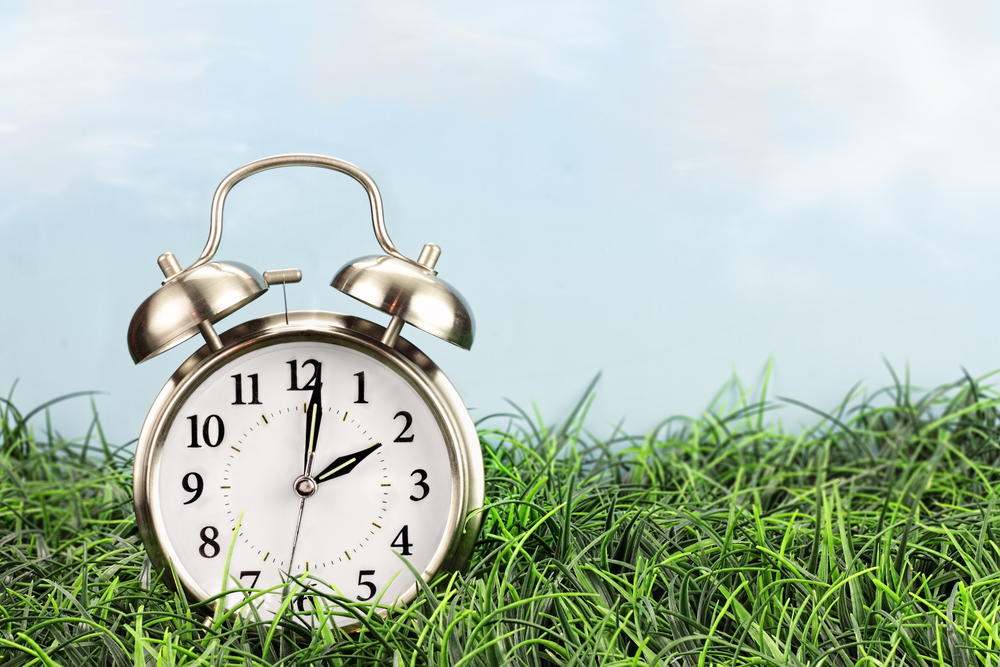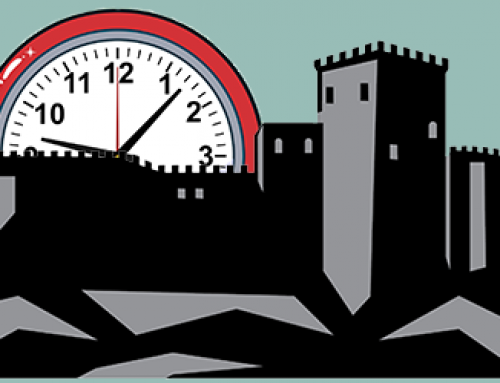 An element of personal and organizational productivity is time management. The change to Daylight Savings Time demonstrates just how important even a single hour can be!
An element of personal and organizational productivity is time management. The change to Daylight Savings Time demonstrates just how important even a single hour can be!
Early Sunday morning, the nation’s clocks will spring forward—and even though our brains know that the time on the clock has changed, our internal body clock doesn’t.
The consequences of the time change can be serious. Studies, including one at the University of British Columbia, documented a five to seven percent increase in traffic accident fatalities during the three days following the spring forward.
A 2011 study by the University of Alabama, Birmingham, found a ten percent spike in heart attacks in the first 48 hours following the time change. (No surprise that there was a ten percent decrease in the “fall back” period.)
So what can we do to adjust our internal clocks? Here are some ideas:
The 15-at-a-time rule
Instead of going to bed an entire hour earlier, start by making adjustments 15 minutes at a time. At the end of a week your body should have readjusted to the time change. Starting the Thursday before the time change, try to go to bed 15 minutes earlier each day.
Power down
Time change or not, it’s hard to fall asleep with a glowing smartphone or tablet. A 2014 British National Institutes of Health survey found that people who used their iPads before bedtime secreted less of the sleep-inducing hormone melatonin, compared to those who read regular books. The study said that the “blue light” from backlit screens was shown to throw off circadian rhythms by more than an hour.
Lighten up
Speaking of light, the right combination of light and dark can help your body’s circadian rhythm readjust so you can fall asleep on your new schedule and sleep more soundly. In the morning, open the shades and brighten the lights. Try to spend time outside during the day, if possible. Dim the lights in the evening, so that your body understands that it’s time to wind down.
Exercise
Working out releases serotonin, a chemical in the brain that helps our bodies adjust to the time change. Exercise regularly, preferably outdoors, and early in the day. A brisk morning walk is perfect. Avoid exercising too late in the evening though, as this could interfere with the quality of sleep.
Nap wisely
Resist the urge to take long naps late in the day. If you get tired, take a short, energizing walk around the block instead. If you must nap, keep it earlier in the day and limit your snooze-time to no more than 20 minutes.
How long will it take you to adapt to time changes?
Though a bit simplistic, a rule of thumb is that it takes about one day to adjust for each hour of time change. There’s significant individual variation, however.
A practical approach?
Why do we wait until Sunday to change times? Why can’t we change times Friday night—like at 11:00 pm? That would give us all Saturday and Sunday to recover? By Monday, we’d be on our way to adjustment!
BTW: We have the same recommendation for Presidents Day in February: why don’t we move the holiday to the first Monday after Super Bowl Sunday? When you spend time helping people be more productive, you begin to question things…
What ideas do you have about adjusting to time changes and being more productive? Let us know!






